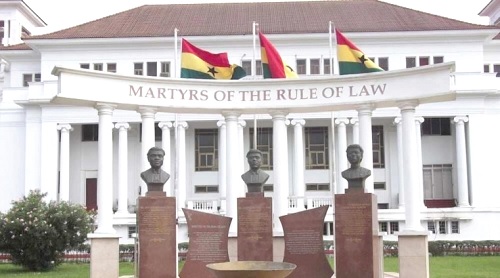As a political science student, I recall one of my professors saying in class one day, “Countries need to develop incentive-compatible institutions.
” Immediately realising that we were lost, he proceeded to provide further and better details.
“Incentive compatible” institutions simply meant developing institutions where institutional actors have every incentive to act in the best interest of all.
More importantly, when institutional actors deviate from acting in accordance with the rules and in the best interests of those they serve, the appropriate sanctions are applied.
Let me give you an example of an “incentive compatible” institution.
After collecting taxes on behalf of the government, a tax officer is tempted to underreport the total amount derived so he can pocket the difference for personal use.
However, realising that these taxes are critical to the government’s ability to generate the revenue needed for development, correctly reports the full amount collected.
However, if the tax officer succumbs to the temptation and underreports the revenue collected, two things happen: a) the infraction is detected and b) the deviant behaviour is appropriately punished.
The incentive for the tax officer to do the right is knowing that the deviant behaviour will certainly be detected and, most importantly, punished.
It is not an exaggeration to describe Ghana as lacking “incentive compatible” institutions.
To improve our governance outcomes, there is an urgent need for institutional reforms.
But I have also realised that whatever reform efforts we undertake must have “restoring faith in our institutions” as a key goal.
Ghana’s institutional dilemma
The country’s institutional dilemma exists on three fronts.
First, there is the issue of trust.
We live in a country where very few citizens have “a lot” of trust in our key institutions.
The Afrobarometer survey captures this very well.
What is worrying about the low trust is that the institutions in question are at the heart of our democratic architecture.
For example, in Round 10 (2024), only 12 per cent of Ghanaians expressed “a lot” of trust in the Electoral Commission.
Does it, therefore, come as a surprise when political parties take it upon themselves to deploy various tactics to protect the ballot?
And does it occur to anyone that such tactics can potentially degenerate into acts of violence?
Second is the perception of institutional corruption.
Again, drawing on Afrobarometer data, very few Ghanaians give our institutions what I call “a clean bill of health on corruption.”
By this, I mean the percentage of Ghanaians willing to answer “none of them” when asked how many people at a given institution are involved in corruption.
In Round 10 (2024), across these institutions (presidency, parliament, police, courts, civil service, local government), no more than 10 per cent of Ghanaians were willing to give any of them a “clean bill of health”
Third, Ghanaians perceive a lack of accountability for public officials. Between Afrobarometer Round 4 (2008) and Round 10 (2024), the percentage of Ghanaians who respond with “often/always” when asked “In your opinion, how often, in this country: Do officials who commit crimes go unpunished?” grew significantly from 28 per cent to 73 per cent.
In a country where citizens do not trust institutions, perceive them to be corrupt and believe that officials are never held accountable, restoring faith in these institutions must be done with the urgency they deserve.
The task ahead
Accountability is essential. Ghanaians must be made to believe that the system can punish those proven to have done wrong when entrusted with public office and resources.
This is why I support the establishment of special courts, as announced by the President after he met with the Attorney General, the acting Chief Justice and the Auditor General, to address reported infractions in audit reports.
The fight against corruption, regardless of the legal approaches used, must succeed because its success is crucial to restoring faith in our institutions.
But before getting to the punishment stage, the system must demonstrate that it can anticipate and detect improper administrative conduct even before it occurs.
I remain baffled and struggling to reconcile a system that has internal systems designed to ensure proper administrative conduct with what I read in the Auditor-General’s report and the charges against certain officials in the National Service Authority and National Signals Bureau cases.
I often use the analogy of “police patrols and fire alarms” as a way of getting us to reflect on the question of why we have internal mechanisms (police patrols) but they seem to fail regularly until there is a fire alarm (investigative report or Auditor-General’s report).
This will require internal reforms tied to a sanctions regime that can be enforced.
The writer is the Project Director, Democracy Project.

